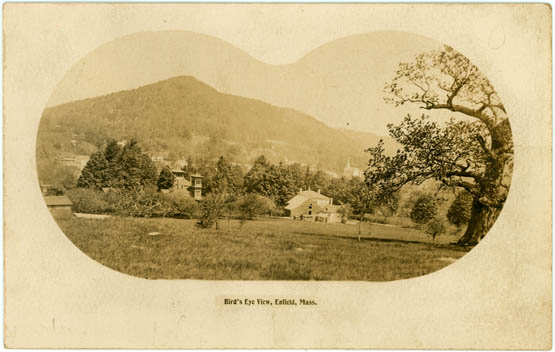Dana (Mass.) Collection
Situated in the northeastern reaches of the Swift River Valley in western Massachusetts, Dana was one of four towns inundated in the 1930s to create the Quabbin Reservoir. Rural and relatively sparsely populated, Dana’s economy centered on agriculture, leavened with manufacturing wood products and soapstone quarrying.
The Dana Collections include a comprehensive records of town meetings from incorporation through disincorporation (1801-1938), plus rich records for the Congregational Church and its affiliate organizations, the Ladies Aid Society, the Orthodox Congregational Society, and the Young People’s Society of Christian Endeavor. Most of the materials listed in this finding aid are held at the Swift River Valley Historical Society in New Salem, Mass., and were part of a cooperative digitization project centered on the records of the Quabbin towns.


